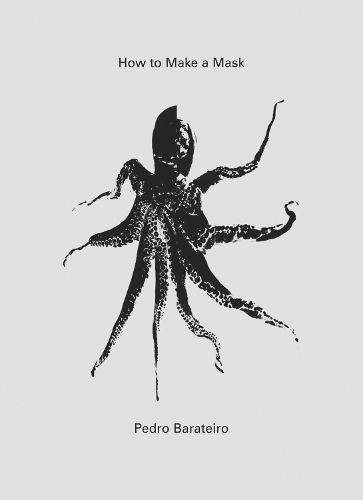Readings Newsletter
Become a Readings Member to make your shopping experience even easier.
Sign in or sign up for free!
You’re not far away from qualifying for FREE standard shipping within Australia
You’ve qualified for FREE standard shipping within Australia
The cart is loading…






Writings and visual materials by the Portuguese artist Pedro Barateiro, with new essays by critics and curators.How to Make a Mask borrows its title from a 2011 performance by the Portuguese artist Pedro Barateiro in which he reflects upon the role of the individual within the sociopolitical situations of the collective through references ranging from psychological tests to the history of theater. The performance was developed and first presented in a period when social media exposure had begun to define new forms of personal interaction. It is now apparent, after all these years, that such new forms of communication and interaction are easily manipulated, facilitating new forms of political control.
Along with the artist’s own writings and visual material, this volume features new essays by Ana Teixeira Pinto and Anders Kreuger, an epilogue by Pieternel Vermoortel and Els Silvrants-Barclay, and an extended note by the editors Jo o Mour o and Luis Silva.
$9.00 standard shipping within Australia
FREE standard shipping within Australia for orders over $100.00
Express & International shipping calculated at checkout
Stock availability can be subject to change without notice. We recommend calling the shop or contacting our online team to check availability of low stock items. Please see our Shopping Online page for more details.
Writings and visual materials by the Portuguese artist Pedro Barateiro, with new essays by critics and curators.How to Make a Mask borrows its title from a 2011 performance by the Portuguese artist Pedro Barateiro in which he reflects upon the role of the individual within the sociopolitical situations of the collective through references ranging from psychological tests to the history of theater. The performance was developed and first presented in a period when social media exposure had begun to define new forms of personal interaction. It is now apparent, after all these years, that such new forms of communication and interaction are easily manipulated, facilitating new forms of political control.
Along with the artist’s own writings and visual material, this volume features new essays by Ana Teixeira Pinto and Anders Kreuger, an epilogue by Pieternel Vermoortel and Els Silvrants-Barclay, and an extended note by the editors Jo o Mour o and Luis Silva.